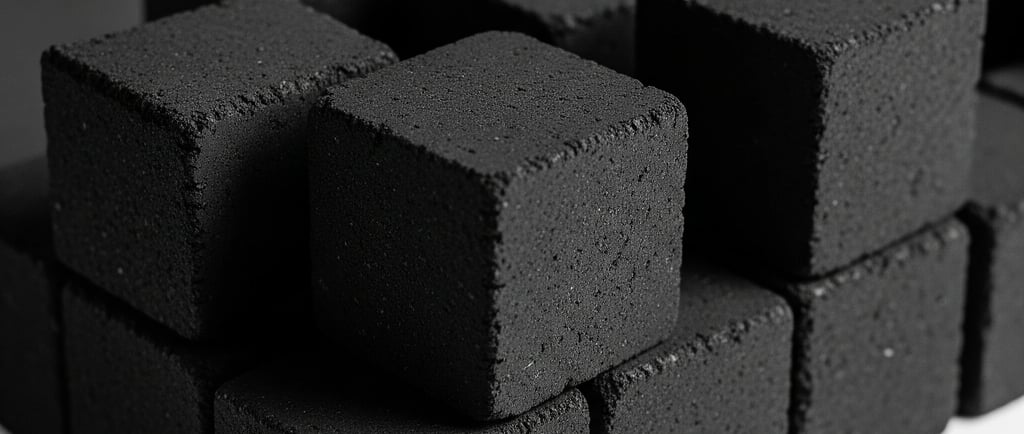🔥 Coconut Shell Charcoal Briquettes vs Regular Charcoal: Which One Is Better?
coconusaindo
7/19/20252 min read


In the world of solid fuel, coconut shell charcoal briquettes are gaining popularity—especially among BBQ enthusiasts, food industry players, and global buyers concerned about sustainability. But what’s the real difference between coconut briquettes and traditional charcoal?
A study by Rahman, Mutalib, and Fredilla compared briquettes made from coconut shell and palm shell as renewable energy sources, revealing key advantages of coconut charcoal in terms of efficiency, sustainability, and environmental impact.
⚖️ Raw Materials: Waste or Wood?
Coconut Charcoal Briquettes: Made from coconut shells, an agricultural waste product abundant in tropical countries like Indonesia. Its production does not require cutting down trees, making it more eco-friendly.
Traditional Charcoal: Typically made from burning hardwood. While the quality may be decent, this practice is often linked to deforestation and forest degradation.
✅ Coconut briquettes win when it comes to sustainable sourcing.
🔥 Combustion Quality & Efficiency
Research shows that coconut shell briquettes have a higher calorific value than most regular wood-based charcoal. Moreover, they:
Burn more evenly
Produce very little smoke
Last longer
Generate minimal sparks
These traits make coconut briquettes the ideal fuel for barbecues, shisha, and residential heating systems in cold-climate countries.
🌱 Carbon Footprint & Sustainability
According to the study by Rahman et al., briquettes made from coconut shell and palm shell can significantly reduce greenhouse gas emissions compared to conventional charcoal because:
Coconut shells are agricultural waste, not harvested wood
Carbonization processes can be efficient and clean
The resulting ash can be reused as organic fertilizer
🌍 This makes coconut briquettes a smart choice for buyers seeking sustainable energy sources
📈 Global Market Potential
As awareness of green energy rises, global demand for coconut briquettes is steadily increasing. Buyers from the Middle East, Europe, and East Asia are actively sourcing high-quality coconut charcoal.
Thanks to its:
Uniform shape
Odorless burn
Crack-resistant surface
Coconut briquettes have become one of Indonesia’s top export commodities in the sustainable fuel sector.
💬 Conclusion
Compared to regular charcoal, coconut shell briquettes clearly offer more advantages, such as:
More sustainable raw materials
Higher and cleaner burn efficiency
Lower environmental impact
For food businesses, households, or international buyers, coconut charcoal is a cleaner, smarter, and more future-ready fuel choice.
📌 Reference
Rahman, K.A., Mutalib, A., & Fredilla. The Production of Briquette Charcoal from Coconut Shell and Palm Shell as A Renewable Energy Source. International Journal of Technical Vocational and Engineering Technology.
🚀 Ready to Switch to Coconut Charcoal?
Are you an international buyer looking for high-quality coconut shell briquettes? Or a business seeking a clean and renewable fuel alternative?
💼 Coco Nusa Indo is here to connect you directly with vetted local producers in Indonesia—no hassle, no middlemen. As a neutral and trusted independent broker, we help you source better, faster, and more reliably.
🔗 Get in touch today at www.coconusaindo.com and let us help you find the best coconut briquettes straight from the source.
🌴 Turning waste into opportunity. From local to global.
Our social media
Connecting local producers with global markets.
Contact us
Email Us
Coconusaindo © 2025. All rights reserved.
